The title refers to the sharp shift of mood between Episode 41, which was full of turbulent emotions, to put it mildly, and Episode 42, which was wickedly amusing in the best French style. And in both cases, the moolkaaran for the mood was Jalal.
I was in two minds whether to take up the light episode first, but I think it is best to save that up, like a delicious dessert to round off the meal. Besides, Episode 41 was as revealing, in an indirect but telling fashion, about Jodha as much as about Jalal, and it is thus worth exploring from that angle as well. So here goes with Episode 41.
Episode 41: An emotional fog.
The one common factor in every segment of this episode was the confusion about what our principal dramatis personae were really feeling, as distinct from what they professed, to others and to themselves, that they felt. It was this emotional fog in which they, especially the Shahenshah and his rebellious Begum, were groping that lent this otherwise overly melodramatic episode an edge.
Jalal: Rage, but for what?:What he feels most strongly, when Ruqaiya tells him about Jodha's desperate wish that he stay away from her, is anger. The shifting expressions in his slightly sozzled face, and the level, unfocussed, steely eyes show the rising tide of fury inside him as she gives him a choice: Send Jodha back to Amer or tolerate her beadabi and your beizzati.
But anger at what? Ruqaiya, whose perception of what makes others tick is totally blurred by her extreme self-centredness and vanity, thinks that his ego is hurt and that he will react accordingly.
Jalal himself believes that he hates Jodha as much and more than she hates him, and this bit of one-upmanship salves his ego, badly bruised at the very thought that she, a mere woman, can actually reject him. For that is what Jodha's wish really amounts to. But is this ego hassle all that it is?
His whole tirade against her is, on the surface, predicated on this egocentric approach.
Itna guroor? Tumne sabke saamne hamari ruswayi ki? HAMARI RUSWAYI? Jodha's explanation, of which more later, only stokes his anger further..Zubaan zaroorat se zyada chalti hai tumhari..
As she makes the mistake of asking him to leave as abhi aap apne aape mein nahin hain.. his fury boils over as he grips her arm and spins her around..
Hamare harem se tum humein nikalogi? Isliye li hum nashe me hain?.. He crushes her hands in his, breaking the glass bangles and cutting her left wrist.
Nashe mein insaan sach bolta hai.. To aaj tumhein ek raaz ki baat batate hain.. And it all comes out in one boiling stream of words, like the lava from a volcano.
Humne tumse nikaah sirf isliye kiya kyonki hum tumse beinteha nafrat karte hain.. Tumhein apni begum banakar isliye laaye the ki tumhare par kaat sakein.. Tumhari awaaz, tumhara guroor, tumhari shaksiyat ko is zenankhane mein qaid kar sakein.. Tum apni nafrat mein hamara sar kaatna chahti thi, par humne apni nafrat mein tumhare sar ko jhuka diya hai.. Ise kehte hain nafrat ki had!
Poori duniya ke saamne tum ek Shahenshah ki begum ho. Wo itni hi izzat bakshenge. Par akele mein tumhein ehsaas hoga ki beizzati kya hoti hai.. Bahut hain jo humse dar darke jeete hain, par tum akeli hogi jise mar marke jeena hoga. Duniya se hum tumhein mehfooz rakhenge, par tumhein humse koyi nahin bacha sakta.. Phir tumhein afsos hoga ki tumne kis galat insaan se nafrat kar baithi!
By asserting that his hatred for her is not merely greater than hers for him, but is far more effective when measured against its objective - which is the humiliation and the overall crippling of its object - he wants to prove that she can never win against him. That his will must always prevail, that he has won and she has lost.
He lifts her veil and looks at her face, his eyes narrowed and contemptuous. Tum tohfa ho hamari jeet ka.. Tohfaa.. the words are drawn out with deliberate emphasis as he draws closer to her. Jodha closes her eyes and turns her face away, shuddering, which enrages him even more.
Haq hai hamara: He shoves her across the room and follows her, pinning her against the wall as she protests in her typical manner: Aap theek nahin kar rahe hain.. Is tarah bal prayog karne ka adhikaar aapko nahin hai.. Perhaps she thought that it would be a repeat of the stormy scene at the night halt on the road from Amer to Agra. But this is not the same Jalal, and not just because he is drunk.
Hum shauhar hain tumhare..Haq hai hamara tum par.. Tum humse door kaise reh sakti ho? Hum jo chahe kar sakte hain..
Then the abrupt volte face. Par karenge nahin.. Chooyenge bhi nahin tumhein, kyonki hamare choone se tumhari auqaat bad jayegi..Tum khud ko khaas samajhogi..Tumhein lagega ki humein tumhari chah hai, humein tumse mohabbat hai.. Par hum aisa kabhi nahin hone denge.. ( A curious throwback to what he tells Abdul, after their escape from Amer, in reply to the latter's remark that he would have done better to have carried off Jodha instead of him, Abdul, where his sentiments were identical).
And Jalal flings himself away from her, and strides out of the room without looking back.
The reason why: But why does Jalal have to say this at all? A king, or indeed any man, does not have to love every woman with whom he has intimate relations, and where Jalal is concerned, the extent of the shahi harem should be proof enough of the truth of this dictum. Why then?
Methinks Jalal protesteth way too much; more than trying to humiliate Jodha, he is really trying to convince himself that this is what he feels, and this is why he behaves the way he does.
This is an emperor, with a mountain size ego. He cannot stand it that this arrogant chit of a girl can actually want him NOT to come anywhere near her.
Plus there is something else that is there, deep inside, that is hurt by her disdain and her despising him.
He does not know it is there, and even when he realises it, as I wrote elsewhere earlier, he will see it as a crippling weakness and will fight it tooth and nail. He will lose in the end, but it will be a very hard fought battle, for as all the sages tell us, the battle against the human ego is the toughest of them all.
However, we are not there yet, and so Jalal hits back at Jodha the only way he can, by trying to humble her, and telling her - and himself - that he hates her, and that all he has done to get her is because of this hate. It is like an angry child shouting at its mother, I hate you! I wish you were dead! It does not mean what it says. In fact it means something very different.
But unlike the mirror image interpretation in my last post, this one is not a rational explanation meant to cover up an emotional reason. Rather, it is one emotional outburst meant to cover up another emotional hurt, almost a wound, that is none the less deep for being unacknowledged, suppressed, and totally denied.
Mills and Boon will not be denied, apparently, for the very thin line between hate and love is the leit motif of their brand of romantic fiction. Anything is better, to their way of thinking, than indifference, which is the true negation of love. Hate, on the other hand, is a very near relation .
Jalal is clearly moving from one stage to another in his emotional graph, but how far, or how fast, one can only guess. The irony of this situation is that the catalyst for this shift in his subterranean mindset has been activated, however inadvertently, by, of all people, Ruqaiya!
As for his stated determination not to touch her, what nonsense! I never believed that for an instant.That was just a cover up for a hurt - You don't want me! Why, whatever gave you the idea that I wanted you? Want? I am not going to touch you. Plus I will make your life an endless misery. So there! Every bit as childish as that. If Jodha were to really try her hand at playing Delilah - though the mind boggles at the prospect! 😉- all this would go out of the window in a nanosecond. And even without it! As it does, of course, in the very next episode!
Jodha: Instinctive defence:When Jalal does turn up, drunk and aggressive, Jodha's instinctive but rather childish attempts to hold him off, beginning with the lowering of the curtain, are of a piece with the her earlier discussion with Ruqaiya. With Jalal, who immediately rips the sheer curtain apart and advances menacingly on her, they are bound to be not just useless but counterproductive.
This includes her maddeningly logical explanation - abandoning her earlier tack of the need for him to respect her maan sammaan - for why she sang what she sang at the jashn, and this with him glaring at her from a foot away.
Aapka apmaan karne ki koyi manshaa nahin thi hamari.. Aur rahi baat aapke aadesh ki, so aapne humein gaana gaane ko kaha so humne gaana gaaya.. Jo aata tha wohi gaaya.. Ismein hamari koyi bhool nahin..
That too in a delightful little girl voice, like a schoolgirl trying to convince her furious teacher that she was being wrongly scolded and punished! Anyone could have guessed that this would ony enrage Jalal futher.
Let us grant that she knows no better, having led a very sheltered life. So what happens next, right up to the time Jalal storms out of her boudoir?
First, she listens to him declaring in the most emphatic fashion possible that
(a) he hates her from the bottom of his heart,
(b) that he had married her only to crush her personality and cage her in the harem,
(c) that she would learn what beizzati really was, and mar marke jeeyegi and finally
(d) that no one could protect her from him.
When she shrinks from the amorous advances he then makes, he is further enraged. That ends, as noted above, in his shoving her to the other side of the room, then pushing her against the wall and asserting that despite his conjugal rights, he would not touch her, in order not to give her any illusions that he desires her or loves her.
Why this helpless anguish? : At the end of this ultra turbulent encounter, Jodha, who by all logic should have been limp with relief and thanking her Kanha on her knees for having listened to her prayers is, on the contrary, shattered. Her drawn face, as she watches the retreating Jalal and sinks to the floor, is a study in abject misery.
The same desperate sense of loss, of being without a mooring in life, is evident from her subsequent conversation with Motibai.
Humein to lagta tha ki Amer ki suraksha ke liye humne balidaan diya hai.. Par sach to yeh hai, Moti, ki Jalal ne hamare jeevan ko narak banana ke liye hi humse vivah kiya hai.. Apne ahankaar ko santrusht karne ke liye.. Socha tha, Amer ke sammaan ke liye jaise taise apna jeevan kaat lenge.. Par ab to ek ek pal kaatna kathin dikh raha hai Moti.. Amer jaana bhi asambhav hai.. Ab to hamare jeevan ka koyi aadhaar hi nahin ..Aur marne ka adhikar nahin hai ( she probably assumes that Jalal would then wreak vengeance on Amer)..Pata nahin ab hum karein to kya karein..
Jodha's eyes are dry but the unshed tears lurk just below the surface of her taut, anguished face, worn out with the emotional overload of the last few minutes. Paridhi brings out all these desperate overtones exceedingly well.
A curious conundrum: What is startling about this undoubtedly sincere lament is the lack of logic that lies at its core.
Now that Jodha is sure that Jalal is not, for whatever reason, going to make unwelcome advances towards her, that he also says that she will be safe and outwardly well respected in the harem, whatever his personal hatred for her, she should in fact feel that she is in clover. This, after all, is exactly what she was seeking when she proposed that bargain to Ruqaiya. What then is so different, so hurtful, now that it causes her so much anguish?
There is only one thing that has changed between Jodha's tete a tete with Ruqaiya and after she has faced Jalal's venomous tirade. It is this: earlier, she had thought that Jalal had manoeuvred her father into this marriage because he wanted her, Jodha. She hated him, but she assumed that he cared for her, in whatever fashion, and that he did want her. His behavior all thru the wedding phase, and on the road to Agra, must have strengthened this assumption of hers, which she undoubtedly told herself was hateful to her, coming as it did from Jalal the Jallad.
Now, that bubble has burst, and she faces the ugly new interpretation of all that Jalal has done to secure her. It is not wanting of any kind, but virulent hatred, and the accompanying urge to humiliate and cripple her whole being.
And this 'truth' is something she is unable to stand. It reduces her to a level of abject misery never before seen on the face of this feisty young lady, who earlier stands firm in the face of great adversity, but is now crushed by the realization that Jalal hates her with a corrosive hatred.
Why this should be so is something she, clearly, does not know. But perhaps we do!
Maham: Acute perceptions: The Begum-e-Khaas will soon realise the wisdom in the warning of Mahaam Anga's mother: Duniya mein hamesha do logon se hoshiyaar rehna chahiye..Ek, jinhein kuch khone ka dar nahin hai, aur do, jinhein kuch paane ki chah nahin hai..Aise log kuch bhi kar sakte hain.. Yeh aurat bikul juda hai, aur isiliye yeh Maham Anga us se khauffzada hai..
In that passage, when she warns Ruqaiya not to be complacent about the threat that Jodha, who is so alag from others, will pose, Maham Anga shows the acute understanding of human nature, and the clear-headed sense of judgement, unimpaired by wishful thinking, that have made her what she is.
Question of the day: How the devil did young Mansingh get into the Shahi harem? It seems to me that is what the Shahenshah should be looking into first! Not that he is going to get into any real trouble for doing that; the cheeky brat will, thanks to Jalal's indulgence towards him, only become cheekier!😉
Now on to Episode 42.
Episode 42: The Emperor holds the aces
Folks, if all of you, and especially the young ladies, have finished drooling over Jalal in the hamaam, and have also had enough of dreaming of what they would do in Jodha's place😉, can you please lend me your eyes (with apologies to both Mark Antony and Shakespeare) ? Okay, so here we go.
Perhaps the most delightful episode so far, this one was also an analyst's dream; it had just 2 noteworthy scenes, but boy, were they superb! These two bookended the whole, and both were unquestionably a showcase for Jalal the Shahenshah, wise and farsighted at one end, and wickedly flirtatious at the other.
In between,there was some fluff : a meaningless encounter between a demented looking Sharifuddin and a footloose Sujamal, and a reversion to her Mrs. Popeye avatar by Jodha's mother. The only relevant point to emerge from the former was that Sharifuddin is still scared stiff of falling out of Jalal's good books, thus not up to rebelling against him, unlike the film avatar, leaving such folly to the likes of Adham Khan.
The second was noteworthy for the resurrection of the term jauhar, which the CVs here seem to equate with suicide by burning oneself to death, whereas it was a highly ritualistic and very formal mass self-immolation by all the women in a Rajasthani fort when it was sure to fall into the hands of the enemy. It always irritates me to see its sublime significance distorted, and it is second only to Jalal ka sar in my list of pet peeves in Jodha Akbar.
Wafadaari taqdeer se milti hai: The soft thumping you might be hearing is the sound of me patting myself on the back, for having correctly predicted that Mansingh would get off scot free once more.
The script has done Jalal proud in this scene, but Rajat goes beyond the script to achieve sone pe suhaga. His clear-eyed wisdom would be the envy of any ruler; he shows himself to be an excellent judge of human nature and of individuals, and he knows how to prize that all too rare virtue, loyalty.
Wafadaari badi taqdeer se milti hai, aur yeh bhi humein taqdeer se hi mile hain..
He sees that loyalty in the stubborn Mansingh, right now for Jodha, and in the future, he is sure, for himself. And so he binds the young man to himself with that strongest and most enduring of bonds, open-hearted and unquestioning acceptance and appreciation. Aur tumhari sazaa yeh hogi ki tum har waqt hamare saath rahoge. Hum tumhein jung ki hi nahin, siyaasat ki taalim bhi denge!
As Jalal places his hand on Mansingh's shoulder and looks into the boy's eyes, one can literally feel Mansingh, his own gaze clear, steady and untroubled by doubt, transfer to his new mentor his fealty for a lifetime.
Jalal's withering put down of Adham Khan for his temerity in reminding him about the harem kanoon - Aayinda humein kanoon sikahne ki gustakhi mat karna. Kanoon humse hai, hum kanoon se nahin! - is both magisterial and masterly . The superb lines are spoken with the absolute authority of a true emperor. It is like a sledgehammer blow, and it knocks down not only its immediate target, Adham, but also, at one remove, the redoubtable Mahaam Anga as well.
She is panic-stricken, and afraid for the first time in the whole of her Machiavellian life (apologies for the gross anachronism, but I could not think of an adjective derived from Chanakya!) . Afraid, she whispers with eyes wide open in apprehension, that Jalal will cross the very thin line separating hate from love in his dil (whose existence is by now taken for granted by everyone in Agra bar Ruqaiya, who prefers his dimaag😉 ).
And Adham Khan, for some reason, looks ready to burst into tears!😉
The fearful prospect of Jalal coming to love Jodha is beginning to haunt Mahaam, and she is undoubtedly planning prophylactic measures, beginning with the generous sprinkling of chilli powder in the food Jodha has cooked for Jalal. But you have to hand it to Mahaam Anga, the old witch has ten times the brains of anyone else in Jalal's entourage, she can sense things about Jalal and Jodha that the principals themselves are unaware of, aur woh bahut door ki sochti hai.
Jalal-Jodha, or the Hamaam Follies: No two words for this; it is pure viewing delight!
Of course the opportunity falls into Jalal's (underwater) lap unexpectedly, but he seizes it with both hands. From the initial Takhliya to the hamaam attendants, he is on the ball, mischievous eyes narrowed as he contemplates the possibilities that Jodha's sudden descent on him might offer. And she walks right into the trap he sets for her.
He plays her like a Menuhin on a Stradivarius. He can sense the nervousness that makes her breathing fast and shallow; he knows most of what there is to know about women, even about one so juda, so alag as this one.
So he refuses at first, taking the high moral ground of not being ready to lie for her: Agar aap soch rahi hain ki Hindustan ka Shahenshah jhoot bolega, aur wo bhi aap ki khushi ke liye, to aap galat soch rahi hain.. Aap jaa sakti hain..
Then he waits. Waits as she hesitates, hoping against hope and unwilling to accept defeat so easily. He smiles to himself, a secret smile of satisfaction. And just as she reluctantly turns to leave, he times his call to the second Rukhiye!
He then proceeds to put her on the defensive with smooth effectiveness..Ek baat batayiye. Aap hamara har farman todti hain, aur badle mein yeh chahti hain hum aapka har armaan poora karein.. Jabse aap mili hain, to sirf shart, shart, shart! Kabhi mazhab ki shart , kabhi mandir ki shart, kabhi kapdon ki shart! Aur ab aap kehti hain ki hum aapke walid saheb se jhoot bolein..
Jodha squirms, but stands her ground, hoping against hope.
A sudden switch to sweet obligingness;Ab jaate jaate yeh bhi bata dijiye ki hum unse kya kahein, kyonki jhoot bolna to humein aata nahin!.
Jodha is overjoyed at this sudden upturn in her fortunes, so much so that she overlooks the hidden jibe in his last sentence, and promptly produces a draft for him, which he accepts at once and undertakes to say it to her father. That does it; though she does not thank him, her guard is by now completely down.
It is in this moment of joyful relief that he lowers the boom; he has a shart this time. She can hardly refuse, having posed so many of her own, and even though she jibs at what he wants her to do, she now has no way out.
Symphony in flirtation: What follows in a symphony in languorous, wicked flirtation by a master of the game . The sidelong upward glance at her confusion, her discomfort at this first ever physical proximity to her handsome husband, that too in a state of considerable exposure, of the kind she has never before faced.
The relaxed enjoyment as she pours the milk, very tentatively, over his shoulders. Taking the jug away and himself pouring it all over his face as he leans back, his strong features, clear thru the white stream, offered up to her gaze, which he knows will be focussed on him.
Then, just as she reaches for the empty jug, dropping it deliberately into the water, so that she is now forced to use her hands instead. Which of course takes much, much longer, even when she gets the hang of it and, seated right next to him on the pool edge, scoops up the water in both hands and washes the milk off his neck.

She looks sulky, pouting as she goes about splashing him, but it does not seem as though she is really angry. Perhaps the sheer relief at having secured the peace of mind of her parents is so overwhelming that it drowns her resentment at having been tricked into helping him bathe. Or maybe it did not feel all that bad after all !
Whatever it was, Jalal had a ball, and the expression in his eyes in the closing shot said it all. He had achieved exactly what he wanted, to get his rebellious Begum up close and personal with him, and this without any chance of her refusing. Tactics and strategy were both impeccable, and it was a treat for us as well!
All this said, could a greater contrast to their stormy encounter of the day before be imagined? Did I not say that all the fury that Jalal vented on Jodha then meant, under the surface, the very opposite? In their hamaam encounter, the truth of my take on Jalal has been fully borne out. My take on Jodha remains!
Hoary old chestnut: As for Jodha wanting to hide the truth about their marriage from her parents, that is standard issue soapy stuff, for all soaps thrive on things having to be hidden from someone or the other😉. In fact I was quite dismayed when this old chestnut surfaced here as well, but then it led to the deliciously wicked hamaam interlude, so I was prepared to overlook this cliche.
Well, folks, a good bit of fun lies ahead, with our Petruchio and Kate putting up a convincing show of newly wedded bliss for the sake of her parents. It can almost make up for the very clichd khaane mein mirchi track, and then again, that awfully clichd passage too was revealing as far as Jalal was concerned.
Bye then, till Thursday next or thereabouts! I will try my best to respond to your comments on this post, but my right hand fingers are in bad shape, and if I am not able to do that, I am sure you will all understand. Thanks in advance!
Shyamala/Aunty/Akka/Di






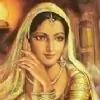



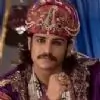













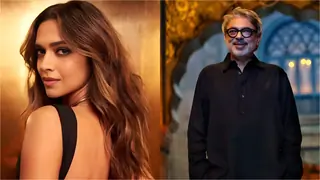

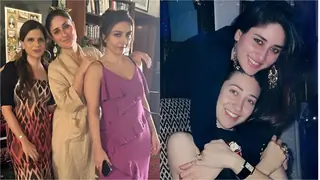
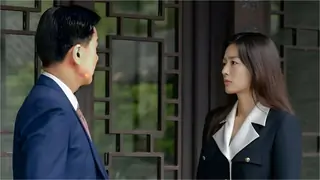

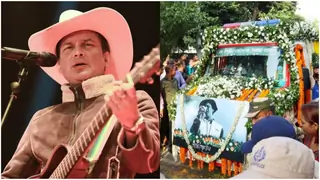


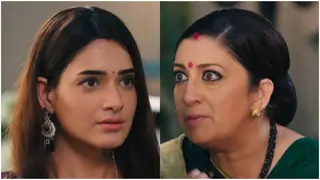

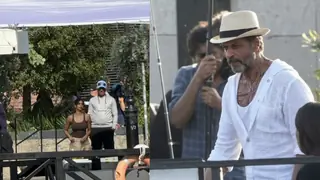


367